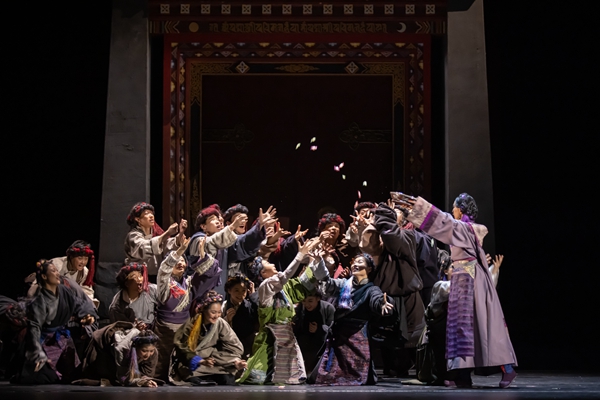

In one such example, when other chieftains are all growing poppies, the protagonist suggests growing food crops instead.
Later when a widespread famine hits the area, grains become more valuable than opium. The clan therefore takes the opportunity to expand its wealth, population and territory.
The story also addresses family feuds between clans, the relationship between power and desire, and the ups and downs of clan structure.
"Seeing the book adapted into the play, I felt a sense of refreshment," says Alai, who serves as the literary consultant for the play.
"It's been almost 30 years since I finished the book. Hearing some of the lines onstage, I recalled that I wrote them."
He says that, compared to novel-writing, which does not necessarily have a length limit, a play is restricted by both time and space, hence presenting an interesting challenge.
"The novel is almost 300,000 words. It's reinvigorating to see how the play condenses and represents the story. It seems like a novel, but somehow different."